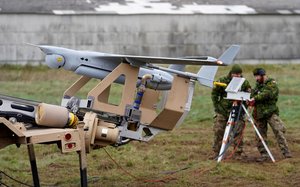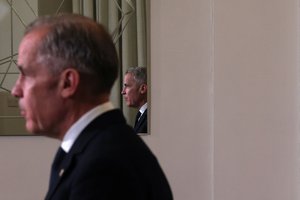Julian Assange allowed Moscow to turn him into a "useful idiot" and ultimately he became a tool that disadvantaged the campaign of Hillary Clinton and helped usher Donald Trump into the White House, says David Mussington, a senior fellow with CIGI’s Global Security & Politics Program, in a conversation with former CBC and BBC Radio Host Mary Ambrose.
"What we have is a cyber attack that impacted the conditions of the American election to the extent that it allowed one side an advantage," says Mussington, who works on issues centred around cyber security, cyberdefence and cybercrime, and has worked on projects for the US Department of Homeland Security, the Office of the Director of National Intelligence, Office of the Secretary of Defense and at the White House.
Rationalizations offered by the founder of WikiLeaks were naive, disproven by the outcome of the presidential contest, and show that Assange has strayed out his depth, according to Mussington.
While the "less discerning eye on sourcing" of the digital leak factory is an important weakness of the new media operation, according to Mussington, legacy media organizations bear some responsibility for the distortion of the democratic process, and may have acted as an insufficiently critical clearinghouse for emails from inside the Clinton camp, including the missives of Campaign Chair John Podesta.
Although state-sponsored interventions in domestic elections are not unheard of in history, the episode underlines the absence of an effective deterrent against digital intrusions, says Mussington.
"It is an inescapable conclusion that Russia was not afraid of undertaking operations where Wikileaks was a useful tool — a useful idiot, in my opinion," he says.
"They did not like Mrs. Clinton and to the extent that they were able to weaken Mrs. Clinton they have been successful," Mussington says in the conversation with Ambrose.


